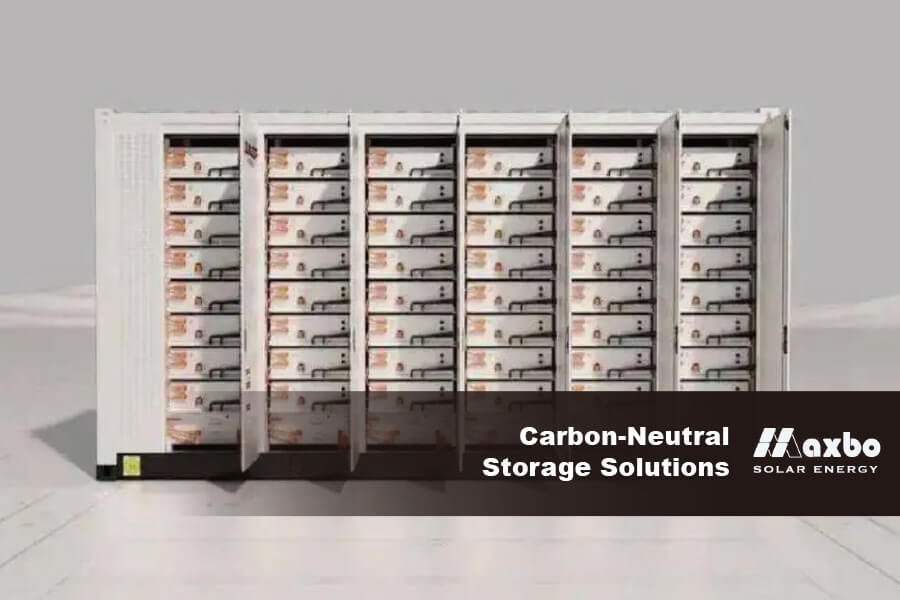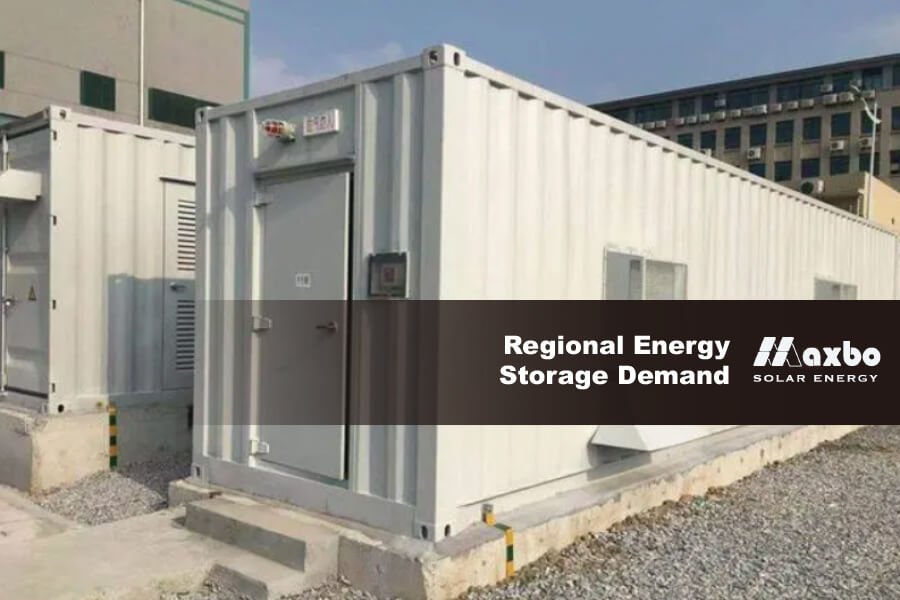In the realm of solar energy, hybrid solar systems stand out as a versatile and advanced option for both residential and commercial applications. Combining the benefits of grid-tied and off-grid systems, hybrid solar solutions offer unmatched flexibility and efficiency. This comprehensive guide will delve into the intricacies of hybrid solar systems, explaining their components, functionality, advantages, and how to choose the right system for your needs. Whether you’re a homeowner looking to maximize energy independence or a business seeking to optimize energy usage, this guide will help you understand why a hybrid solar system might be the perfect choice for you.
Table of Contents
Toggle1. What Is a Hybrid Solar System?
A hybrid solar system integrates solar panels, batteries, and a connection to the grid to provide a flexible and efficient energy solution. Unlike traditional grid-tied systems, hybrid systems include energy storage (batteries) that allows users to store excess energy generated during the day for use at night or during power outages.
Key Components:
- Solar Panels: Capture sunlight and convert it into direct current (DC) electricity.
- Inverter: Converts DC electricity from the panels into alternating current (AC) electricity used by home appliances. Hybrid systems typically use a hybrid inverter, which manages both grid and battery storage functions.
- Battery Storage: Stores excess energy generated by the solar panels for later use. This is crucial for ensuring a continuous power supply during non-sunny periods or outages.
- Grid Connection: Allows the system to draw power from the grid when solar production is insufficient and to feed excess energy back into the grid.
2. How Does a Hybrid Solar System Work?
1. Energy Generation:
- Solar panels capture sunlight and convert it into DC electricity.
- The hybrid inverter then converts this DC electricity into AC electricity suitable for household use.
2. Energy Storage:
- Excess energy produced during sunny periods is stored in the battery system.
- The battery storage ensures that you have power available during cloudy days, at night, or during a grid outage.
3. Grid Interaction:
- The system can draw power from the grid when solar production and battery storage are insufficient.
- Excess energy generated can be fed back into the grid, potentially earning you credits or payments through net metering programs.
4. Energy Management:
- The hybrid inverter manages energy flows between the solar panels, batteries, and grid.
- It optimizes energy use based on your consumption patterns and availability, ensuring efficient use of stored energy and reducing reliance on the grid.
Maxbo Solar provides advanced hybrid solar systems designed to maximize energy efficiency and independence while offering reliable power solutions.
Reference:
- Journal of Renewable and Sustainable Energy. (2023). “Understanding Hybrid Solar Systems: Components and Functionality.” Retrieved from AIP Publishing
3. Advantages of Hybrid Solar Systems
1. Energy Independence:
- Hybrid systems reduce your reliance on the grid by storing excess energy for use during non-sunny periods or outages.
- Provides peace of mind with backup power capabilities during grid failures.
2. Cost Savings:
- Reduces electricity bills by using stored solar energy during peak hours when electricity rates are high.
- Potentially lowers energy costs through net metering and energy arbitrage strategies.
3. Environmental Benefits:
- Decreases your carbon footprint by relying more on renewable energy and less on fossil fuels.
- Contributes to a sustainable future by optimizing the use of solar power.
4. Flexibility:
- Can be customized to meet specific energy needs, including different battery sizes and system configurations.
- Offers adaptability for future upgrades or changes in energy consumption.
5. Increased Property Value:
- Homes and businesses with hybrid solar systems often see an increase in property value due to the attractive energy-saving features and potential for lower utility costs.
6. Enhanced Energy Management:
- Sophisticated energy management systems ensure efficient use of energy, reducing waste and optimizing performance.
7. Grid Stability:
- Hybrid systems contribute to grid stability by reducing the strain on the grid during peak times and providing a reliable power source.
Maxbo Solar’s hybrid solar systems are engineered to deliver these benefits while offering exceptional performance and reliability.
Reference:
- Renewable Energy Focus. (2023). “Advantages of Hybrid Solar Systems: A Comprehensive Overview.” Retrieved from Elsevier
4. Choosing the Right Hybrid Solar System
1. Assess Your Energy Needs:
- Calculate your average energy consumption to determine the appropriate system size and battery capacity.
- Consider future energy needs, including potential home expansions or increases in energy use.
2. Evaluate Installation Space:
- Ensure you have adequate space for solar panel installation, whether on your roof or ground-mounted.
- Consider the placement of batteries and inverters to ensure optimal performance and accessibility.
3. Select the Right Components:
- Solar Panels: Choose high-efficiency panels to maximize energy generation.
- Inverter: Select a hybrid inverter that meets your system’s needs and integrates well with your batteries.
- Batteries: Opt for reliable and long-lasting batteries with sufficient capacity to cover your energy needs.
4. Consider Local Regulations:
- Check local regulations and incentives for solar installations to ensure compliance and take advantage of available benefits.
5. Professional Consultation:
- Consult with solar experts to get tailored recommendations based on your specific requirements and preferences.
Maxbo Solar’s team of experts can help you navigate the selection process, ensuring you choose the best hybrid solar system for your home or business.
Reference:
- Energy Reports. (2023). “Guide to Selecting the Optimal Hybrid Solar System.” Retrieved from Elsevier
5. Installation and Maintenance of Hybrid Solar Systems
1. Installation Process:
- Site Assessment: Evaluate the installation site for suitability, including roof strength and orientation.
- Permitting: Obtain necessary permits and ensure compliance with local building codes and regulations.
- System Installation: Install solar panels, batteries, and inverters according to manufacturer specifications and guidelines.
- System Testing: Perform comprehensive tests to ensure the system is functioning correctly and efficiently.
2. Maintenance Requirements:
- Regular Cleaning: Clean solar panels periodically to remove dust and debris that can affect performance.
- Inspection: Conduct regular inspections of the system to check for wear and tear, and ensure all components are functioning properly.
- Battery Care: Monitor battery health and replace batteries as needed to maintain system efficiency.
Maxbo Solar offers professional installation services and ongoing maintenance support to ensure your hybrid solar system operates at peak performance.
Reference:
- Solar Energy. (2023). “Best Practices for Installing and Maintaining Hybrid Solar Systems.” Retrieved from ScienceDirect
6. Cost Considerations and Financial Benefits
1. Initial Investment:
- Cost Breakdown: Includes the price of solar panels, batteries, inverters, and installation.
- Financial Incentives: Explore available rebates, tax credits, and other incentives to reduce the upfront cost.
2. Long-Term Savings:
- Energy Bills: Significant reduction in electricity bills through efficient energy use and storage.
- Return on Investment: Hybrid systems can offer a strong return on investment through energy savings and increased property value.
3. Financial Planning:
- Cost vs. Savings: Analyze the long-term savings versus the initial investment to evaluate the financial benefits.
- Financing Options: Consider financing options or leasing programs to make the investment more manageable.
Maxbo Solar provides competitive pricing and assistance with financial planning to help you achieve the best possible return on your hybrid solar system investment.
Reference:
- BloombergNEF. (2023). “Cost Analysis and Financial Benefits of Hybrid Solar Systems.” Retrieved from BloombergNEF
Conclusion
Hybrid solar systems offer a powerful and flexible solution for maximizing energy efficiency and independence. By understanding their components, benefits, and selection criteria, you can make an informed decision that aligns with your energy needs and financial goals.
Maxbo Solar is committed to providing top-notch hybrid solar systems and expert support to help you achieve a sustainable and cost-effective energy solution. Visit Maxbo Solar to explore our range of hybrid solar systems and discover how we can assist you in harnessing the full potential of solar energy.
References:
- Journal of Renewable and Sustainable Energy. (2023). “Understanding Hybrid Solar Systems: Components and Functionality.” Retrieved from AIP Publishing
- Renewable Energy Focus. (2023). “Advantages of Hybrid Solar Systems: A Comprehensive Overview.” Retrieved from Elsevier
- Energy Reports. (2023). “Guide to Selecting the Optimal Hybrid Solar System.” Retrieved from Elsevier
- Solar Energy. (2023). “Best Practices for Installing and Maintaining Hybrid Solar Systems.” Retrieved from ScienceDirect
- BloombergNEF. (2023). “Cost Analysis and Financial Benefits of Hybrid Solar Systems.” Retrieved from BloombergNEF
Related Solutions
Related Blogs
Grid-Forming BESS Container Europe: Crushing NC RfG 2.0 & Keeping Europe’s Lights (and Espresso Machines) On
行政2025-12-19T14:07:50+08:00December 18th, 2025|Categories: Design, News|
Electric Vessel Charging BESS Container Europe: The Grid-Saving Hero Powering Zero-Emission Maritime
行政2025-12-19T14:09:32+08:00December 18th, 2025|Categories: Design, News|
Let’s Make Things Happen
Add notice about your Privacy Policy here.
Let’s Make Things Happen
”The Maxbo team of sales consultants will continue to enrich our own expertise and experience to empower the development of sustainable energy with rigor.“
Maxbo CEO
You will need to provide: 1. the amount of electricity used. 2. the type and power of the load. 3. the electricity consumption habits (daytime/nighttime consumption). 4. the need to store electricity. 5. the need to feed electricity to the mains. 6. drawings or address of the installation site. 7. other special requirements
We can provide you with a quotation, a specification for all products, a circuit connection diagram and a diagram of the installation and placement of the PV panels. Any other requirements and adjustments needed can be discussed with our team.
We can meet the needs of most scenarios, whether your application is for domestic, commercial and industrial use, in remote areas, or for grid-level energy storage, we have experienced colleagues to design and deliver the right solution.
Add notice about your Privacy Policy here.
How much solar power do I need?
Most homes need 5–12kW, depending on your energy use and location.
Off-grid vs. grid-tied — what’s the difference?
Off-grid works without the utility grid; grid-tied lets you sell extra power back.
Do I need permits?
Usually yes — check local rules or ask us for guidance.
How long does a battery last?
Depends on size and load. A 5kWh battery can power a fridge for about 40 hours.
Can I upgrade my system later?
Yes, our systems are modular and easy to expand.
Does Maxbo offer installation?
We ship globally and connect customers with trusted local installers.






